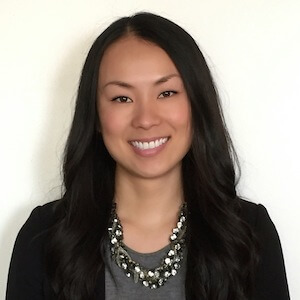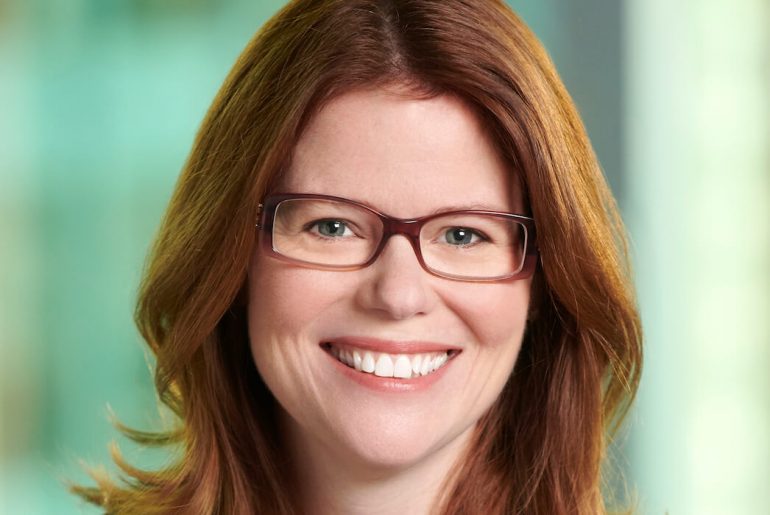Interac recently hosted women leaders in FinTech to discuss some of the top challenges they face in the industry. The evening brought together women from a range of roles, including founders, executives, and venture capitalists that make up the Toronto FinTech ecosystem. In an intimate setting, the group discussed everything from the difficulties of becoming a woman leader in an industry dominated by men to key advice for other women looking to grow in their careers.
Afterward, BetaKit spoke with Terri O’Brien, chief risk officer, as well as Jessica Lerro, head of technology transformation programs at Interac, about some of their specific experiences in the world of finance, business, and technology.
At the dinner, we discussed “disruptive moments” that women in FinTech have experienced that have changed their business and/or personal careers. Walk me through a moment that has been positively disruptive and explain how it has helped you.
O’Brien: I was speaking on a ‘Women in Leadership’ panel about the challenges and opportunities we face as women, as well as the importance of mentoring. During the panel, someone referenced the financial industry as being a “male-dominated industry.”
“It’s not a male-dominated industry, but rather an industry dominated by men at the top.”
-Terri O’Brien
I reminded them that the industry isn’t male-dominated, it’s actually the opposite. The majority of employees, senior manager and below, are women. However, AVPs [assistant vice president] and above are typically men. Therefore, it’s not a male-dominated industry, but rather an industry dominated by men at the top. We need to do a better job making sure we’re promoting and developing our most qualified and diverse candidates.
Lerro: A disruptive moment for me was taking a leap and accepting this role at Interac, a role that I knew was going to be a challenge and stretch assignment that I needed to quickly grow into. Before this, I had always taken the path of least resistance and I think this stems from a place that most women struggle with – self-doubt and lack of confidence. I realized I needed to be bold and take advantage of this opportunity.
In hindsight, I am glad that I pushed myself because it will open up so many doors for me to bigger and better opportunities that I wouldn’t have the chance to pursue if I continued to take the incremental approach in my career.
Is there a particular moment that you feel has defined or changed your career? Describe the way you approached it.
O’Brien: At a time before Interac, I held the same job for about four years and felt it was time to move to the next level. I applied for two lateral moves, both of which I was qualified for, and didn’t get either job. When I inquired as to why, I learned it was because the business partners felt I was too critical to the team, and they didn’t want to lose me.
This was a defining moment because I realized the organization I was working for was putting their needs above mine. This not only puts the employee at a disadvantage but also the organization, as they’re losing out on the new thoughts/processes that come when someone new takes over a position.
By losing these positions, I realized I was selling myself short by only looking at one department and at lateral moves. From there, I perfected my elevator pitch, and began cold calling and setting up meetings with senior executives who could be in a position to hire and help me advance. The result [was] I had a new job in 6 months. The lesson: sometimes failure breeds success.

What does it mean to be a mentor in FinTech, and how does it help you champion women in the industry?
Lerro: To me, mentorship is all about advocating for a person. It’s important to me and I strive to find people who I see myself in so that I can share my own personal learnings that will positively impact them. It’s both a professional and personal learning opportunity for both sides. My goal is to help them reach their full potential.
What is a key piece of advice you would give to women trying to build their career?
O’Brien: My advice to women to help build their career is to take chances and put themselves out there. This has always been one of the hardest things for me personally, I’m naturally introverted, and I had to overcome that. However, once I did, my life changed.
Put yourself out there by applying for a job you’re not qualified for, or networking, or participating in speaking opportunities, and prepare yourself. This isn’t something that comes naturally to many people, so preparation is key.
At the dinner, you spoke about the idea of bringing a “host gift of information” to the table. Can you explain why you feel that’s important and name a time or experience of bringing your own “host gift” to your career?
O’Brien: As I prepared for those meetings with the executives who could potentially hire me, I thought about a host gift. What is something unique I can bring them, what information or new perspective can I share? Information is currency in our businesses, so you need to bring something to the table that would be of interest [or] helpful to them. Just like when you bring a gift for an event host, never show up empty handed when it comes to building your career.
Who are key mentors that have helped you and what are some insights from those mentors that have helped you in your career?
Lerro: I had some good advice early on in my career which was that you should always have your own “board of directors.” That means a group of people that you trust and keep close who will look out for your best interests, strive to help you grow and give you the difficult-to-hear advice. As you go through different stages in your career, you may change some people in your group of board of directors. I regularly check in with my mentors. They help me make my big career decisions.
How do you build diversity and champion women at Interac?
O’Brien: I’m always looking for opportunities to champion women who need clear and vocal support. Systemic biases still exist, so we need to overreach into groups that are underrepresented in order to hire and promote the most qualified and diverse candidates. It’s not about hiring 50/50, rather, it’s about focusing on proactively hiring the qualified women in order to balance out current teams. This all comes back to fostering equality.
Feature image – Terri O’Brien, Chief Risk Officer, Interac. Images courtesy Interac.


